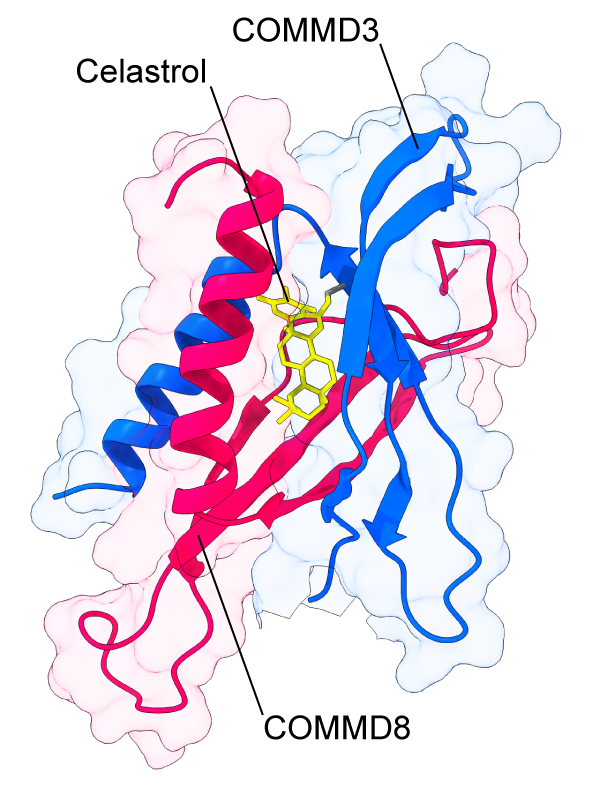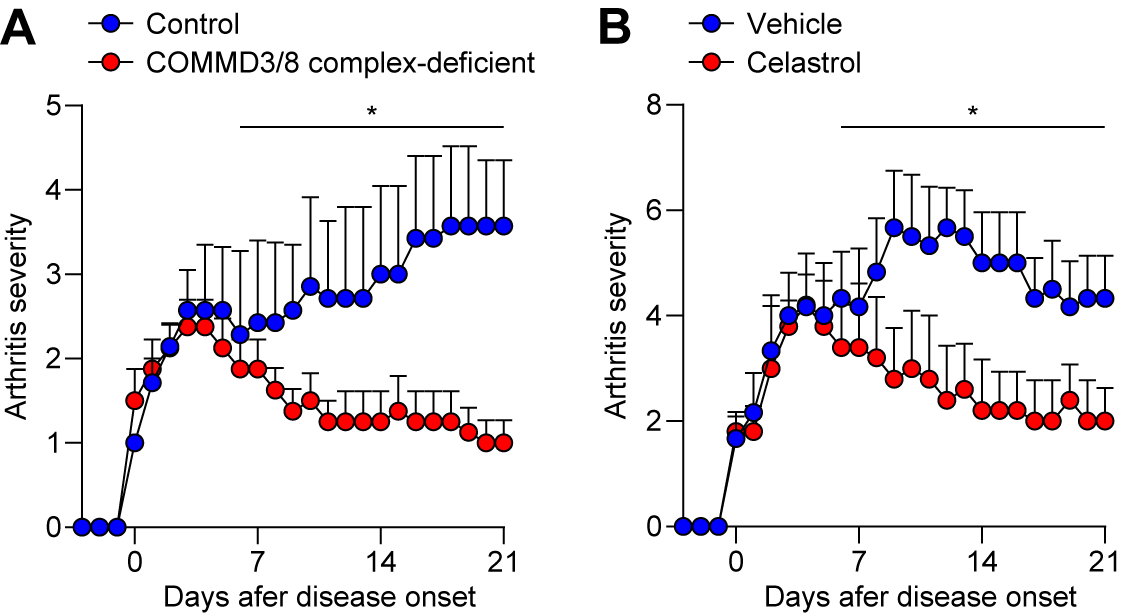A herbal compound to fight autoimmunity (Suzuki Lab, in Science Immunology)
Researchers in Suzuki Lab identified a protein complex involved in the pathogenesis of rheumatoid arthritis. They also show that celastrol, the active compound of a medicinal herb, blocks the progression of the disease by inhibiting the protein complex.
We all know that a strong immune system is a definite advantage. Yet, sometimes, the immune system goes awry and attacks one’s body. This autoimmunity is the cause of various disorders, such as rheumatoid arthritis, Crohn’s disease, type 1 diabetes, or celiac disease. To fight these diseases, it is crucial to determine the mechanisms underlying their pathogenesis. In a study to be published in Science Immunology, researchers from Osaka University aiming to address this knowledge gap identified a protein complex that promotes the progression of rheumatoid arthritis. This complex comprises two proteins, named COMMD3 and COMMD8. The research team also found that celastrol, an extract from the root of a medicinal plant colloquially named the “Thunder God vine”, is a potent inhibitor of the COMMD3/8 complex.
"We had previously shown that the COMMD3/8 complex potentiates the humoral immune response, yet its role in autoimmune diseases remained unclear," says Kazuhiro Suzuki, senior author. The team generated a mouse model in which the expression of COMMD3 can be switched off. “Deleting COMMD3 results in the degradation of COMMD8 and, consequently, the disappearance of the COMMD3/8 complex,” explains Taiichiro Shirai, lead author of the study. The absence of the COMMD3/8 complex led to an impaired humoral immune response. “The number of cells producing antibodies decreased, suggesting that the COMMD3/8 complex has an important role in the autoimmune response," says Taiichiro Shirai.
Then, the researchers used a mouse model of rheumatoid arthritis. They repressed COMMD3 expression as soon as the mice exhibited the first symptoms. By doing so, the progression of the disease stopped, indicating that the COMMD3/8 complex promotes the autoimmune response.
“Once we had established the importance of the complex in autoimmunity, we set about identifying a compound that could interfere with the formation of the complex,” explains Kazuhiro Suzuki. "Our chemical screen identified celastrol as the most potent inhibitor of the COMMD3/8 complex." Celastrol is an active compound from Tripterygium wilfordii, a medicinal herb that is known to have anti-inflammatory properties, though its mechanism of action is not fully elucidated. The study showed that celastrol binds to COMMD3 covalently and prevents the formation of the COMMD3/8 complex, thus impairing the antibody response and blocking the progression of rheumatoid arthritis in the mouse model.
Because the COMMD3/8 complex is central to the pathogenesis of rheumatoid arthritis, and of the progression of autoimmunity in general, it is a promising therapeutic target for autoimmune conditions, and celastrol is a particularly exciting lead for developing treatments against rheumatoid arthritis and other autoimmune diseases in the future.
The article, “Celastrol suppresses humoral immune responses and autoimmunity by targeting the COMMD3/8 complex,” was published in Science Immunology at DOI: https://doi.org/10.1126/sciimmunol.adc9324
Links
- Home
- Achievement
- Research Activities
- A herbal compound to fight autoimmunity (Suzuki Lab, in Science Immunology)









